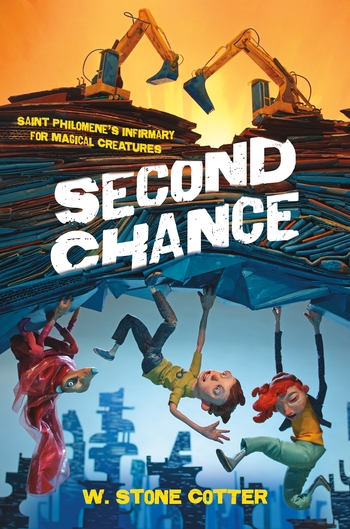Grammar Quirks: W. Stone Cotter on Writers Who Are Cynical About Writing
W. Stone Cotter, author of “Second Chance,” collects quotes from writers cynical about their profession. Here are some of his favorites.
Grammar Girl: What’s your favorite word and why?
W. Stone Cotter: For years it was “melancholy,” a word which, when spoken, sounds as blue as its meaning, and also works well in sentences that feature a kind of sing-song meter. (One of my favorite books is Robert Burton’s “Anatomy of Melancholy,” a miscellany on depression published in 1621.) But lately, I like the word “oblivion,” which is highly flexible, weirdly musical, works as a concrete object or an abstraction, and sounds cool as a zero-article term, especially at the end of a sentence: “Ginger exited the entrance ramp, and met with oblivion.”
G: What’s a word you dislike (either because it’s overused or misused) and why?
WSC: Any of the adjectival filler terms like “amazing,” “incredible,” “wonderful,” etc. They’ve lost their real meanings through generalized overuse, which is a shame—they were all sound, utilitarian, narrowly defined words at one time. I try to edit them out of any sentences in which they want to be, but it’s tough! They’re so easy to fall back on, and I still find myself using these toothless words out of pure laziness.
GG: What word will you always misspell?
Buy Now

WSC: I really have to think about how to spell “necessary,” and most of the time I’m obliged to look it up, including just now.
GG: What word (or semblance of a word) would you like to see added to the dictionary? Why?
WSC: I wish there was a word which means “homesick for a place one has never been.” There might be some long compound word in German for this idea, but nothing in English that I know of. I can’t even think of a passable coinage. “Wistical”? Nah. “Whencelonging”? No. “Hankerpining”? I don’t think so.
GG: Any grammar pet peeves we should know about?
WSC: When the word “disinterested” is used as a synonym for “uninterested.” “Disinterested” means “impartial,” and nothing else. Grrr.
GG: To what extent does grammar play a role in character development and voice?
WSC: It’s everything! Especially in dialogue. I feel that I can construct a character more convincingly if I illustrate how they speak—the rhythm of their speech, whether they speak in whole sentences, if they’re interrupters, if they’re often at a loss for words, if they quit talking midsentence—rather than which words they choose to use. Though word choice is important too, of course! A line of dialogue like “I really need to borrow something to write with” is less revealing of character than ”

